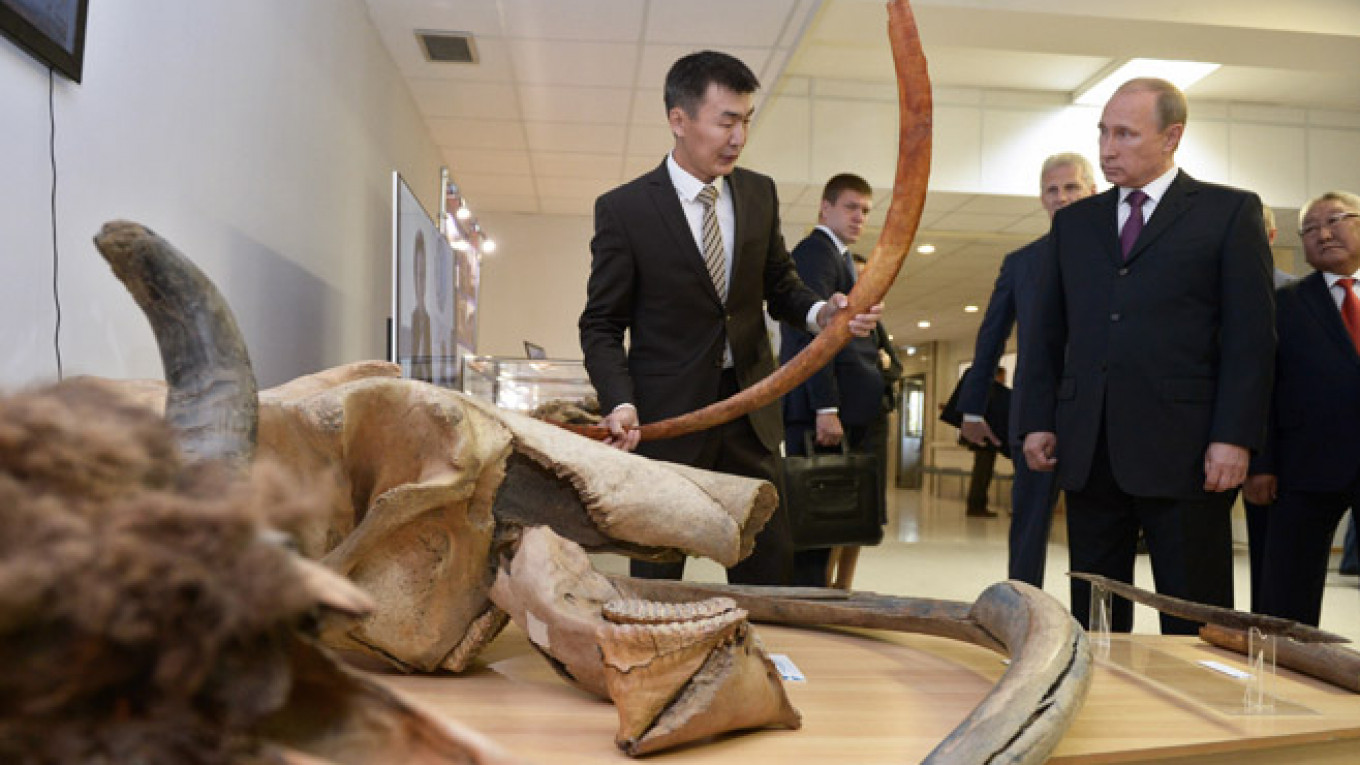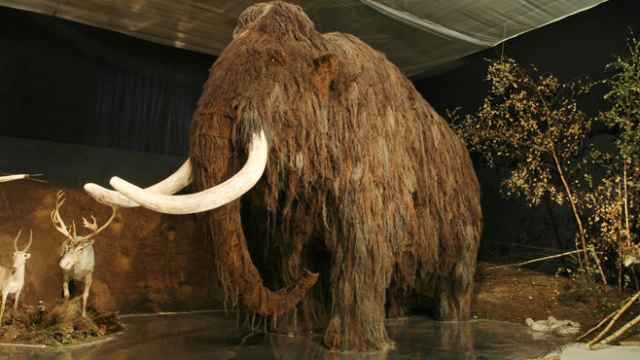Will woolly mammoths roam among us once again, more than four millennia after they went extinct? President Vladimir Putin would like to know, Gazeta.ru reported Monday.
The Lazarev Mammoth Museum at Northeastern Federal University in the far-northern city of Yakutsk set up a special exhibition featuring rare prehistoric animals for a recent visit by the president, the report said.
Putin was reportedly especially taken with the museum's mammoth exhibit, featuring the world's only known complete mammoth skeleton.
Museum director Semyon Grigoryev told Putin that the university's collection boasts the corpses of more than 4,000 different animals, the bodies of which have been pieced together since 2010 — including the mummy of a dog that died more than 12,000 years ago, according to Gazeta.ru.
During their discussion of the animals on display, Grigoryev told the president that the museum also possesses the shockingly well-preserved remains of a 28,000-year-old mammoth. The mammoth's body still contains soft tissue and even some liquid blood, the report said.
Putin then displayed interest in the potential for cloning woolly mammoths, asking whether the existence of blood and soft tissue rendered such a project feasible.
Grigoryev explained that the museum is currently working with South Korean scientists to determine whether the prehistoric species' re-emergence could be possible.
Earlier this month, regional media reported that experts from the Northeastern Federal University would be working at a new center in Yakutsk to research cloning possibilities for mammoths. The center is expected to begin operations next month.
The Sakha republic, whose capital is Yakutsk, is known to be a goldmine for archeological and paleontological finds, with 80 percent of Russia's mammoth remains having been discovered there.
Woolly mammoths are believed to have gone extinct some 4,500 years ago.
A Message from The Moscow Times:
Dear readers,
We are facing unprecedented challenges. Russia's Prosecutor General's Office has designated The Moscow Times as an "undesirable" organization, criminalizing our work and putting our staff at risk of prosecution. This follows our earlier unjust labeling as a "foreign agent."
These actions are direct attempts to silence independent journalism in Russia. The authorities claim our work "discredits the decisions of the Russian leadership." We see things differently: we strive to provide accurate, unbiased reporting on Russia.
We, the journalists of The Moscow Times, refuse to be silenced. But to continue our work, we need your help.
Your support, no matter how small, makes a world of difference. If you can, please support us monthly starting from just $2. It's quick to set up, and every contribution makes a significant impact.
By supporting The Moscow Times, you're defending open, independent journalism in the face of repression. Thank you for standing with us.
Remind me later.






